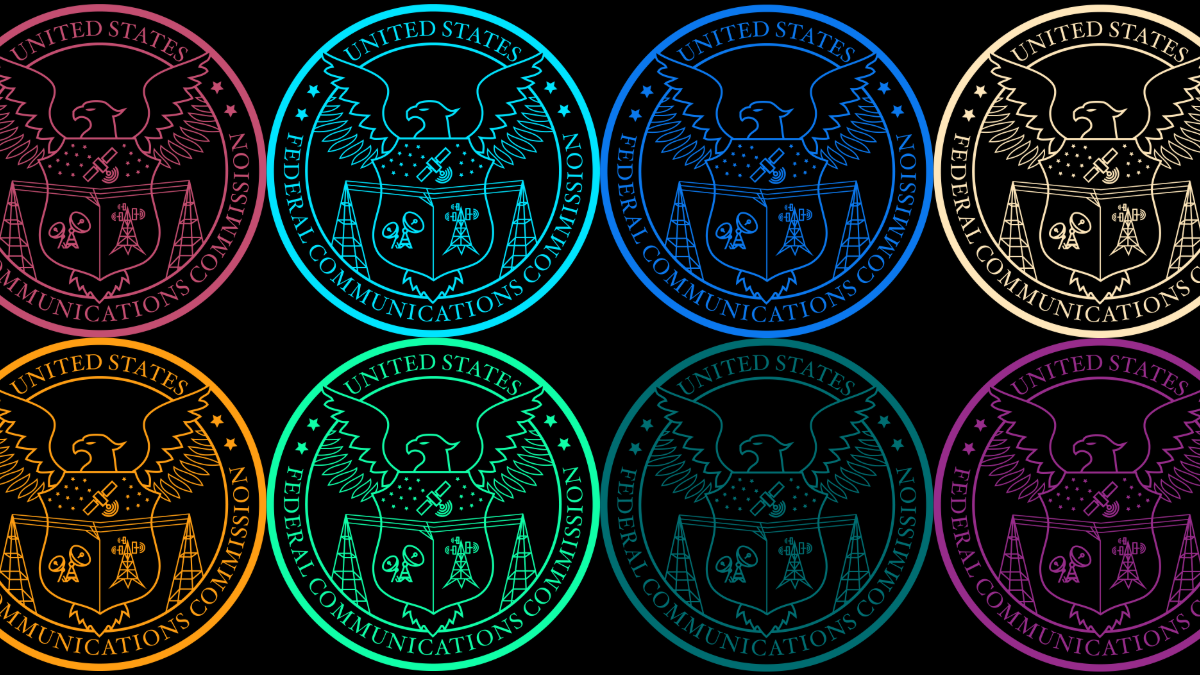FCC Proposes AI Disclosure Rules for Political Ads, Implementation Uncertain
Prithvi Iyer / Jul 30, 2024
Composite of logos of the Federal Communications Commission.
On July 25th, 2024, the US Federal Communications Commission (FCC) announced a new proposal to increase transparency in political advertising that uses artificial intelligence (AI). The proposal would require those who file information about TV and radio advertisements with the FCC to disclose if AI was used in creating the content. If implemented, these rules could bolster transparency in political campaigns, something civil society organizations have pushed for to help voters identify manipulated and AI-generated media. These rules do not ban AI-generated content for political ads and only require disclosure when AI is used.
Announcing the proposal, FCC Chairwoman Jessica Rosenworcel stated, "Today, the FCC takes a major step to guard against AI being used by bad actors to spread chaos and confusion in our elections."
The FCC's proposal aims to complement existing efforts by the Federal Elections Commission (FEC) and various state laws addressing AI use in elections. It would focus on areas outside the FEC's jurisdiction, such as television and radio stations, and cover a broader range of political advertising beyond federal candidates.
In a letter to the FCC, Ellen Weintraub, the FEC's Vice Chair, specifically noted, "No one agency currently has the jurisdiction or the capacity to address every aspect of this large and complicated issue." This highlights the regulatory gap the FCC is attempting to fill. While the FEC can regulate AI use in online advertisements for federal candidates, its authority is limited. The FEC does not oversee television and radio stations, nor does its jurisdiction extend to independent issue campaigns or state and local elections. The FCC's proposal would, therefore, address these areas not covered by existing FEC regulations, potentially creating a more comprehensive framework for AI transparency in political advertising across various media and election types.
There is also some pushback against the FCC regarding concerns about overlapping mandates and jurisdictions. In his June letter to the FCC, FEC Chairman Sean Cooksey expressed concerns that the FCC’s proposal would fall within the “exclusive jurisdiction” of the FEC, conflict with existing laws, and “could create irreconcilable conflicts between the agencies that may end up in federal court.”
The FCC's proposal has also drawn mixed reactions from academia. Sander van der Linden from the University of Cambridge noted that while the proposal is a step forward, more regulation may be needed to counter the psychological impact of AI-generated content on voters. Matt Motta of Boston University highlighted a significant limitation in the proposal's scope. He noted that the rules don't extend to online platforms and streaming services, which are especially important channels for political advertising among younger voters. Despite these limitations, Motta suggested that these rules could “have important consequences for the upcoming election if finalized within the next few months” by creating barriers to the use of manipulated audio and visual content in political campaigns.
Civil society groups including Public Citizen have come out in support of the FCC. Robert Weissman, co-president of Public Citizen, praised the FCC's move:
"Consumers have a right to know when AI tools are being used in the political ads they see on the airwaves. That's the common-sense foundation for the FCC's desperately needed proposed rules on AI broadcast transparency."
Weissman emphasized the bipartisan nature of similar legislation in twenty states and argued that the FCC's action is "entirely commensurate with the agency's legal authority and traditional practice relating to broadcast political ads."
What’s Next?
The Commission opened a notice of proposed rulemaking (NPRM) for the regulations, which will have a 30-day public comment period, followed by a 15-day reply period, after which the Commission staff can develop rules that a majority of FCC Commissioners must approve. Doubts remain about whether the FCC can implement the rules before the upcoming election. Moreover, the agency lacks direct authority in this area and would need Congress to act to give it stronger enforcement powers.
Authors
